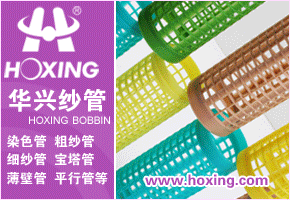Invista eyes up 20:20 sustainable vision
WICHITA - Invista, the maker of Lycra elastane and a range of other synthetic textile fibres has set ambitious targets to reduce its energy intensity 20 per cent by 2020 in a bid to cut the amount of energy its uses to make per ton of product.
Invista says it has identified energy reduction as the key way in which the giant synthetic textile fibre company can best reduce its overall impact on the environment. The company, which is the world's largest integrated fibre, resin and intermediates business, is best known for its Lycra-branded elastane. But it also makes a range of branded nylon and polyester fibres and polymers such as Coolmax, Dacron, Tactel, Cordura and Thermolite which involve energy intensive processes.
“At Invista, we’re dedicated to being good stewards of natural resources as we make products people value,”said David Dotson, Invista’s senior vice president of global operations.“Efficient energy use is part of that commitment. To achieve this goal, our teams will devise and implement innovative strategies and capital projects that help us continue to reduce our energy footprint.”
To achieve this, Invista plans to capture improvements in reliability, production, quality and yield, and also says it will‘advance capital projects’that reduce waste and improve energy conversion. At the moment though it’s unclear how these achievements will be measured and how they will be communicated to the wider industry and retail brands.
Yet Michel Lebrun, Invista’s vice president of operations excellence, pointed out the company has already made strides in this respect, claiming that its site in Gersthofen, Germany, has already reduced energy intensity by 11 per cent since 2007. The company also says that its Performance Surfaces & Materials business has reduced the total fuel energy intensity at its North American facilities by 13 per cent compared to 2007 levels. This achievement resulted from a sharpened focus on waste elimination and system upgrades in site-generated utilities such as steam.
Invista, which was bought by Koch Industries for US$4.2 billion from DuPont in 2004, normally keeps a low profile on environmental initiatives so this new, public announcement is significant, because it indicates that the company sees sustainability and environmental stewardship as an increasingly important part of its overall offer.







